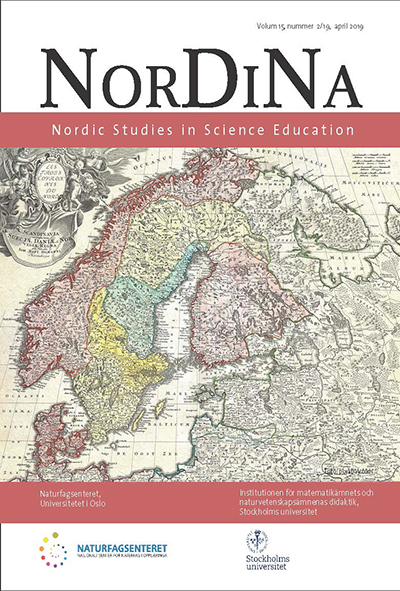Assessing adolescent self-efficacy in ‘body and health’ - Exploring the psychometric properties of the SEBH scale
DOI:
https://doi.org/10.5617/nordina.5913Emneord (Nøkkelord):
Questionnaire, Adolescents, Validity, Body, HealthSammendrag
Self-efficacy beliefs are significant predictors of achievement in education. However, majority of existing self-efficacy measures are rather ‘general’ and assess aggregated perceptions of students’ proficiencies within broad academic disciplines. Applying Rasch analysis, the present study explored the psychometric properties of the five-item ‘self-efficacy in body and health’ (SEBH) scale as administered to 1622 tenth-graders aged 15-16years in Norway. Based on our sample, the SEBH scale stood out as well targeted and reliable with acceptable overall fit to the partial credit parameterization of the polytomous unidimensional Rasch model. Except for a slightly reversed threshold in item 1, which could be explained by few persons located at low levels of self-efficacy, the locally independent items had ordered response categories and functioned in the same way for the different levels of relevant person factors. Adapting this scale to different fields of education would contribute to development of more specific measures of perceived capability.
Nedlastinger
Ytterligere filer
Publisert
Utgave
Seksjon
Lisens
Authors who publish with this journal agree to the following terms:- Authors retain copyright and grant the journal right of first publication with the work simultaneously licensed under a Creative Commons Attribution License that allows others to share the work with an acknowledgement of the work's authorship and initial publication in this journal.
- Authors are able to enter into separate, additional contractual arrangements for the non-exclusive distribution of the journal's published version of the work (e.g., post it to an institutional repository or publish it in a book), with an acknowledgement of its initial publication in this journal.
- Authors are permitted and encouraged to post their work online (e.g., in institutional repositories or on their website) prior to and during the submission process, as it can lead to productive exchanges, as well as earlier and greater citation of published work (See The Effect of Open Access).


